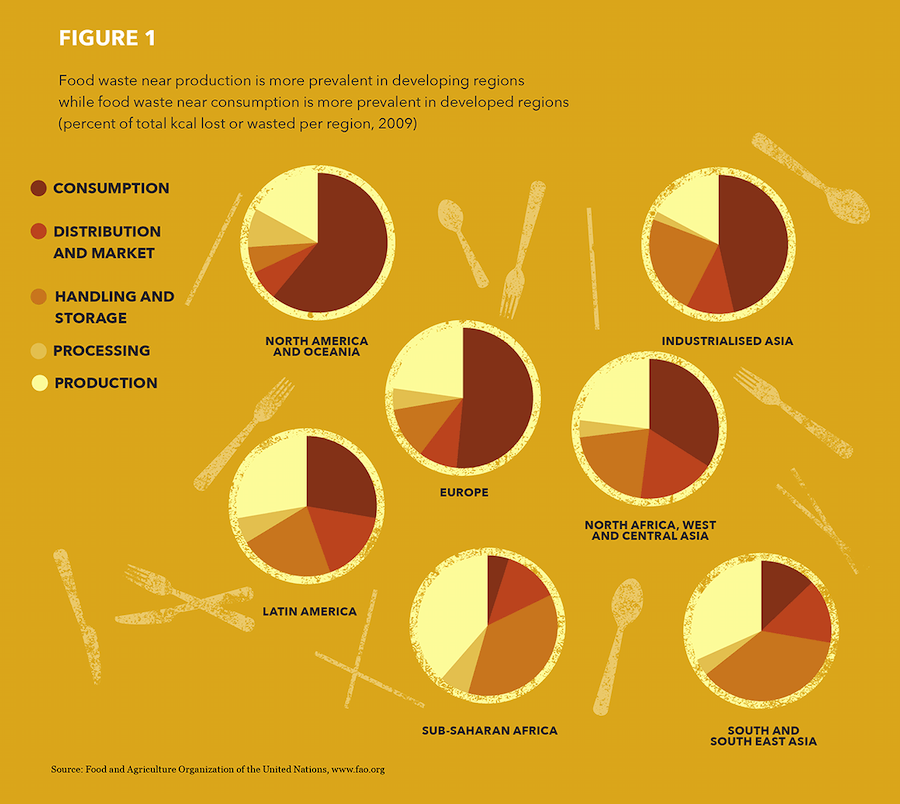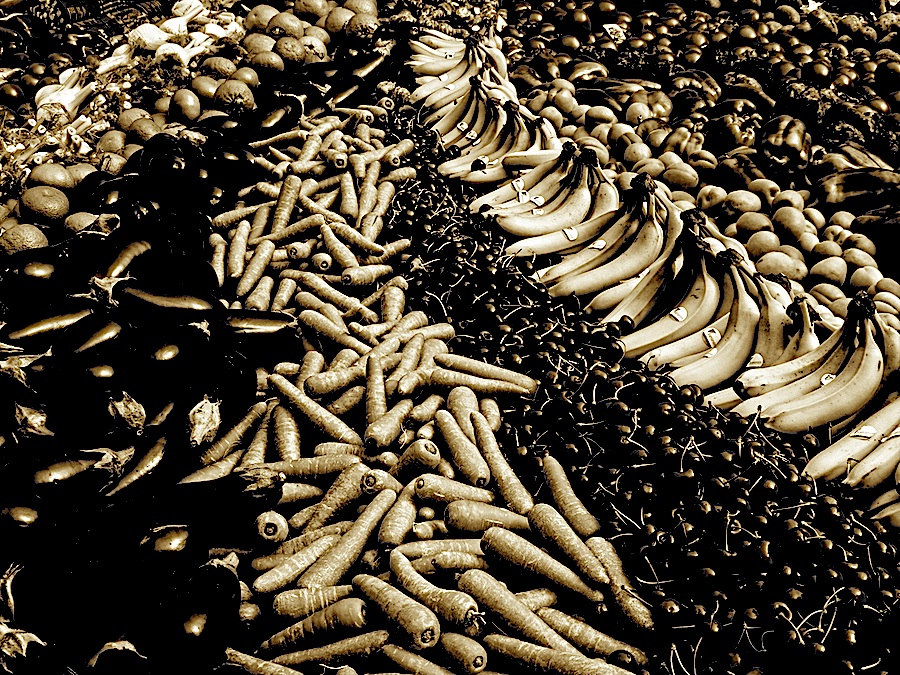If food waste were a country, it would be the third-largest emitter of greenhouse gases (8% of annual global greenhouse gases come from food waste).1
One-third of all food produced globally is wasted, representing a total value of about $940 billion per annum.2 Food waste therefore poses an enormous challenge for our planet and society – and this is likely to intensify, given that the world’s population is projected to grow significantly.
Tackling the problem requires different approaches in developed and developing regions: in developing regions, food waste is more prevalent near agricultural production and in post- harvest handling and storage; in developed countries, more food is wasted near consumption (see figure 1).
Given the breadth of these issues, food waste has been incorporated into the twelfth United Nations Sustainable Development Goal (SDG): Goal 12.3 aims to ‘halve per capita global food waste by 2030 at the retail and consumer levels and reduce food waste along production and supply chains, including post-harvest losses.’
Reducing food waste has been described as a ‘triple win’: for the economy, for food security and for the environment. Champions 12.3, which is a global food-waste reduction initiative, states that reducing food waste ‘can help feed more people, it can save more money for farmers, companies and households, while creating new business opportunities… and reductions can alleviate pressure on climate, water and land resources.’3 For investors, it is therefore important to understand the benefits to companies that can accrue from reducing food wastage so they can engage and encourage organisations to turn this challenge into an opportunity.

THE FINANCIAL CASE FOR REDUCING FOOD WASTE

























